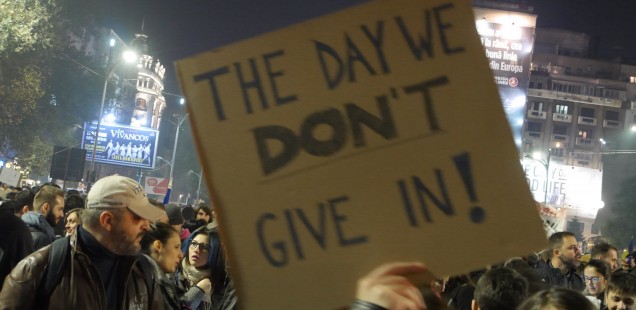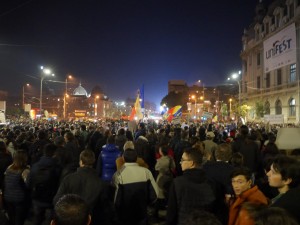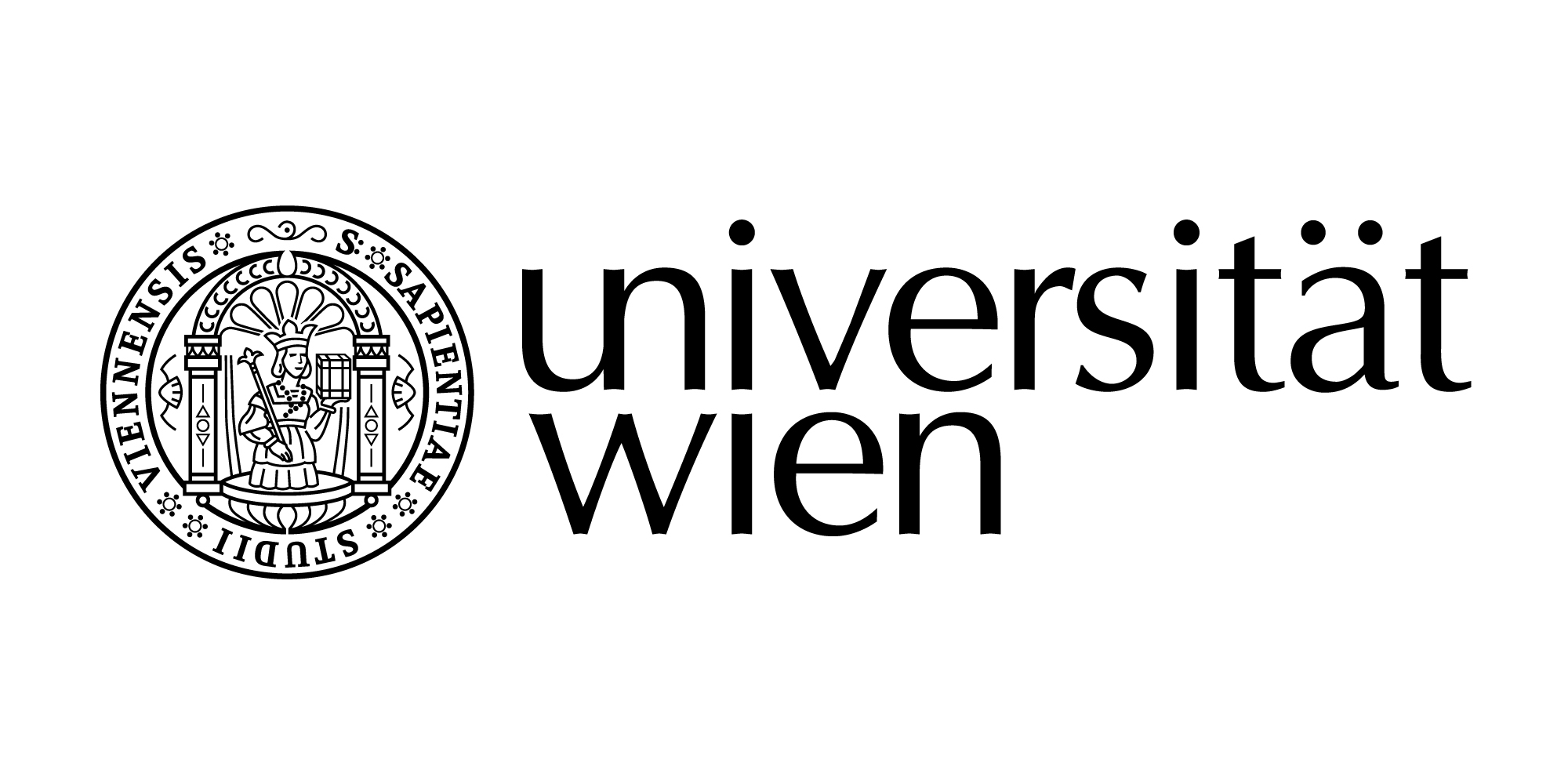
“The days we don’t give in.” The Romanian social movements between 2012 and 2015
The recent history of Romanian street protests is short, but intensei. By following the example of the worldwide protests, the Romanian civil society got out of its nutshell of passivity, by manifesting discontent and outrage in respect to different political decisions. The particularity of the Romanian social movements lies in the fact that, despite the wave of demonstrations against austerity measures in almost all the European states, mobilization did not occur on economic grounds, but rather on apparently insignificant and diverse social incidents.
Until 2012, Romania’s civil society was weak, anaemic and lacked the cohesion necessary to exert a considerable influence in the policy-making process. From one year to another, following the collapse of the communist regime in 1989, trust in political parties, actors, and institutions decreased dramatically. This fact, next to an immature civil society incapable of consensus and articulation of its interests and wills, led to an acute crisis of legitimacy of the political class. In 2012, Europe was already marked by anti-austerity street protests, while Romania gave no sign of rage or at least, discontent. Despite the financial cuts and severe economic and social measures imposed by the crisis per se as well as the IMF, Romanian citizens seemed to bear the heavy duties imposed both by the government and international institutions.
Suddenly, in January 2012, street protests began when Raed Arafat, the founder of the Mobile Emergency Service for Resuscitation and Extrication (SMURD), one of the most credible figures in the political arena, was removed from his post as subsecretary in the Ministry of Health. The public rage turned against the deficiencies in the health system as well as the political austerity measures of the democratic liberal government. The riots partially politicized due to the implication of the Social-Liberal Union (formed by the Social-Democrat Party and the National Liberal Party), back then in opposition, and lasted until the Prime Minister was forced to resignii.
Starting with May 2012, the tense cohabitation between the President and the new Prime Minister (leader of the SLU) and the worldwide Occupy protests were translated into decisions that determined once again the general discontent. Examples of this fomenting discontent were the Anti-Counterfeiting Trade Agreement (ACTA) and Internet censorship protestiii, the Bowties Movementiv, and the Quotations Mark Protestv. The anti-ACTA riots expressed the disapproval against the unwillingness of politicians to launch a debate on the necessity of a law regulating activities on the Internet and the solidarity with protesters from other countries on the same matter. The other two social movements had a pronounced intellectual orientation: the Bowties Movement concerned the decision to subordinate the Romanian Cultural Institute to the Parliament, a decision which was feared to affect its integrity and apolitical character; whilst the Quotations Mark Protest concerned the Prime Minister’s plagiarism of his PhD thesis. These three protests did not have the same national coverage as the first one from 2012, but they sent signals that the Romanian civil society was waking up. In addition, they represented the first forms of depoliticised protests that later evolved into veritable proofs of civil cohesion and social mobilization against the political machinery. In fact, the protests supporting Arafat were the last politicised movement, used and partially organised by SLU in order to achieve political support against the Democrat-Liberal Party (PDL) that formed back then, the government. The major social movements following it were almost entirely organized by civil society on social media and their depoliticised character was revealed both by slogans such as ”Toate partidele, aceeași mizerie” [All the parties, the same filth] –used starting with Romanian Autumn and ending with Colectiv Revolution –and the prompt reject of any politician who appeared in the public squares and who tried to associate himself/herself with the protestersvi.
If 2012 was dominated by rather diverse, but small protests, the following year witnessed a previously unseen and unknown side of environmental protests in the Romanian public space. The Romanian Autumn, as it had been called, started on 1 September 2013 and lasted until 11 February 2014. Each Sunday for six months, thousands of people from all major Romanian cities and the Romanian diaspora manifested their disapproval against the mining exploitation in Roșia Montană (a small village in the Apuseni Mountains) by a foreign corporation (Gabriel Resources). The particularity of this movement with respect to the previous ones lied in the social heterogeneity of the protesters and the remarkable public mobilisation against a project supported by local and national political authorities, as well as the mainstream media. The Romanian Autumn started as an environmental and social movement, but it soon turned into protests against political authorities and the politicians’ lack of credibility, corruption and indifference to the voice of people. At the same time, the environmental stake of this wave of protests was underlined by the solidarity with another Romanian village, Pungești, the place where Chevron obtained the concession to extract shale gas by hydraulic fracturing. The anti-fracking movement began in 2012vii, but in 2013 it was transformed into national revolts that culminated during the Romanian Autumnviii.
The series of environmentalist protests continued in May 2015, even though its manifestation did not reach the same degree as the previous one. Several thousands of people gathered in the squares of all the major Romanian cities protested against illegal logging, an intricate affair mixed up with corruption and particular interests of Romanian politicians and oligarchs.ix Because the events from May 2015 did not have the same echoes in the political decisions (despite the changes made in the Forest Code banning illegal logging x and the creation of the Radar of Forests where citizens can verify the legality of any truck-load of woodxi, Romania still loses every hour three hectares of woodlandxii) and thus were not considered a success, the civil society was perceived as ”fallen asleep” as it had been before 2012. Despite the small victories of the civil movements, no significant changes occurred. The political arena was still far from a veritable reform.
A couple of months ago, more precisely on 30 October 2015, a fire in a club called Colectiv killed several dozens of youngsters and severely injured more than one hundred people. The fire from Colectiv embodied many of the structural problems of the Romanian realities. The club had no authorization for serving hundreds of clients and it did not respect all the legal conditions, the local authorities are easily bribable and usually do not control spaces with public destination. Moreover, hospitals had insufficient human and material resources in order to care for the victims. In particular, no political leader assumed responsibility for the incident. After three days of national mourning, thousands of people, (35 000 in Bucharest and other dozen of thousands people in all the citiesxiii), started the Colectiv Revolution (a word play using the name of the club and the idea of cohesion), and demanded the resignation of Prime Minister Victor Ponta, the Minister of Internal Affairs Gabriel Oprea, and Bucharest’s District 4 Mayor Cristian Popescu Piedone, as well as a reform of the political systemxiv. The next day, the Prime Minister, who had already fallen into public disgrace, resignedxv. As a consequence, President Klaus Iohannis asked the protesters to formulate suggestions in order to reform the political systemxvi. In social media and public squares ideas such as the following were expressed: increase of funds for health and education, measures to end nepotism, bribery and corruption, and improve the transparency of political decisions, a decrease to 300 of the number of mandates in the Parliament, encouraging social solidarity, taxation of the economic activities of the Orthodox Church (as a matter of fact it was the first time in 25 years when protesters directly expressed their discontent toward the Orthodox Church), and so on. Therefore, the appointment of a government of technocrats at the beginning of December represented the direct result of the pressure exerted by civil society – a long awaited and well-deserved success indeed.
i The photos of the protests used in this article were taken by Adrian Bojenoiu.
ii Helen Pidd. 2012. “Romanian Prime Minister and Cabinet Resign En Masse”. The Guardian, 7 February. http://www.theguardian.com/world/2012/feb/06/romania-pm-cabinet-resign.
iii Alina Neagu. 2012. “Proteste împotriva ACTA în mai multe orașe ale țării. La București au manifestat câteva sute de oameni” [Anti-ACTA Protests in Several Cities of the Country. In Bucharest Several Hundreds of People Marched]. Hotnews, 11 February. http://www.hotnews.ro/stiri-esential-11481423-proteste-impotriva-acta-mai-multe-orase-ale-tarii-40-mii-oameni-anuntat-prezenta-mitingul-din-bucuresti-peste-25-mii-cluj.htm.
iv V. Cozmei, and C. Barbu. 2012. “Mișcarea papioanelor: circa 500 de oameni au protestat tăcut la ICR” [The Bowties Movement: About 500 People Silently Protested to RCI]. Hotnews, 18 June. http://www.hotnews.ro/stiri-cultura-12557081-miscarea-papioanelor-circa-500-oameni-protesteaza-tacut-icr.htm.
v “Protestul ghilimelelor în București și Cluj Napoca” [The Quotations Mark Protest in Bucharest and Cluj Napoca]. 2012. Newskeeper.ro https://newskeeper.ro/articol?id=C3B208CE7F38D2F9FC035216EA81ED93&data=2012-07-03, 3 July.
vi “Mihail Neamțu, alungat de protestatari din Piața Universității” [Mihail Neamțu, Chased by the Protesters from the University Square]. 2013. România Liberă, September 18. http://www.romanialibera.ro/politica/institutii/mihail-neamtu–alungat-de-protestatari-din-piata-universitatii-312910; “Incendiu Colectiv. Un politician apropiat PNL, alungat de la protestul din Timișoara” [The Fire from Colectiv. A Politician Closet o PNL, Chased from the Protest in Timișoara]. 2015. România TV, November 5. http://www.romaniatv.net/incendiu-colectiv-un-politician-apropiat-pnl-alungat-de-la-protestul-din-timisoara-video_255201.html.
vii Tomasz Daborowski and Jakub Groszkowski. 2012. Shale Gas in Bulgaria, The Czech Republic and Romania. Political Context, Legal Status, Outlook. Centre for Eastern Studies. http://aei.pitt.edu/58010/1/shale_gas_in_bulgaria_the_czech_republic_and_romania_net_0.pdf, 22-26.
viii Raluca Beșliu. 2013. “Get the Frack Out of Romania!”. CNN, October 17. http://ireport.cnn.com/docs/DOC-1049728; Euronews. 2013. “Romania: A Small Village’s Anti-Fracking Protest Spreads to the Capital”, October 17. http://www.euronews.com/2013/10/17/romania-a-small-village-s-anti-fracking-protest-spreads-to-the-capital/.
ix Andrei Luca Popescu. 2015. “Proteste față de defrișările din România” [Protests against Logging in Romania]. Gandul.info, May 9. http://www.gandul.info/stiri/proteste-fata-de-defrisarile-din-romania-klaus-iohannis-cred-ca-protestul-de-astazi-este-perfect-legitim-14234300.
x “Președintele Iohannis a promulgat legea de modificare a Codului Silvic” [President Iohannis Promulgated the Law Modifying the Forest Code]. 2015. Mediafax, June 5. http://www.mediafax.ro/social/presedintele-iohannis-a-promulgat-legea-de-modificare-a-codului-silvic-14411080.
xi Laura Mitran. 2014. “Radarul pădurilor. Oricine va putea cere verificarea legalității unui transport de lemn apelând 112” [Anyone Could Ask to Verify the Legality of Any Load of Wood by Callying 112]. Mediafax, September 26. http://www.mediafax.ro/social/radarul-padurilor-oricine-va-putea-cere-verificarea-legalitatii-unui-transport-de-lemn-apeland-112-video-13351623.
xii Greg Norman. 2015. “Romania Struggles to Turn the Tide of Illegal Logging”. Mongabay, December 4. http://news.mongabay.com/2015/12/romania-struggles-to-turn-the-tide-of-illegal-logging/.
xiii “Romania: Protests Despite Victor Ponta’s Resignation”. 2015. BBC News, November 5. http://www.bbc.com/news/world-europe-34726826.
xiv Andra Timu, and Irina Vilcu. 2015. “Thousands Protest against Romanian Premier after 32 Die in Fire”. Bloomberg.com, November 3. http://www.bloomberg.com/news/articles/2015-11-03/thousands-protest-against-romanian-premier-after-32-die-in-fire.
xv Mark Tran. 2015. “Bucharest Nightclub Fire: PM and Government Resign after Protests”. The Guardian, November 4. http://www.theguardian.com/world/2015/nov/04/romanian-government-resigns-nightclub-fire-victor-ponta.
xvi “Nouvelles manifestations en Roumanie, alors que le bilan du drame de la discothèque s’alourdit”. 2015. Le Monde, November 8. http://www.lemonde.fr/europe/article/2015/11/08/nouvelles-manifestations-en-roumanie-alors-que-le-bilan-du-drame-de-la-discotheque-s-alourdit_4805271_3214.html.



